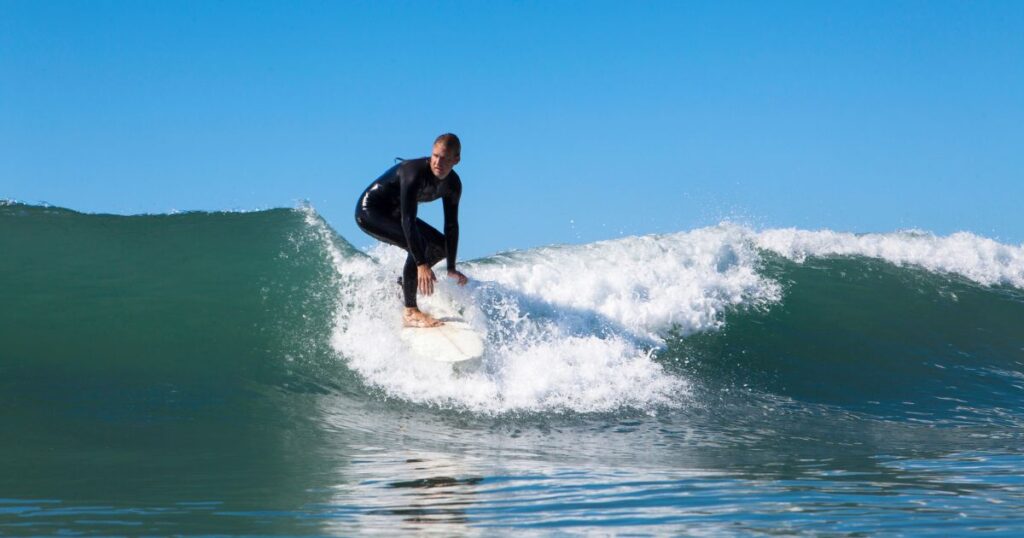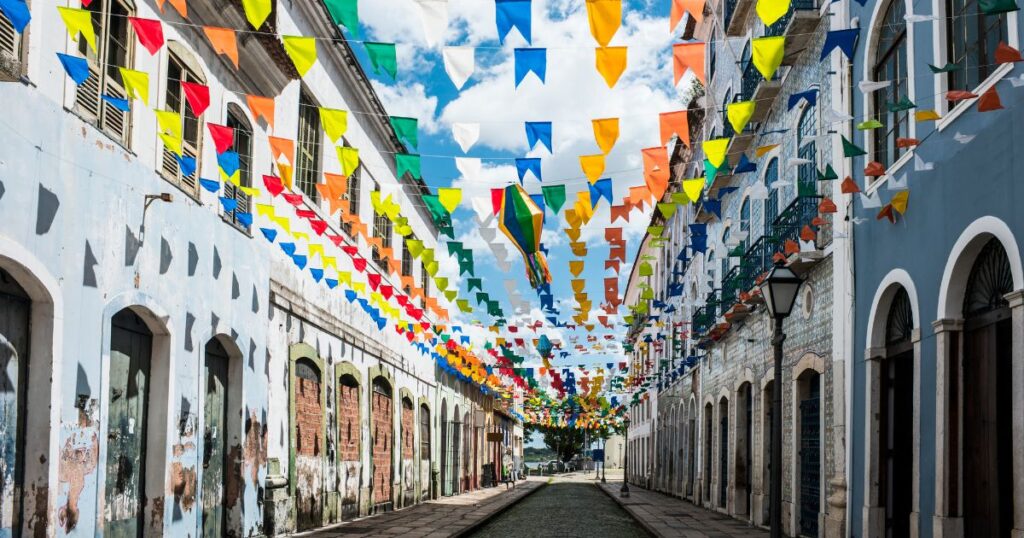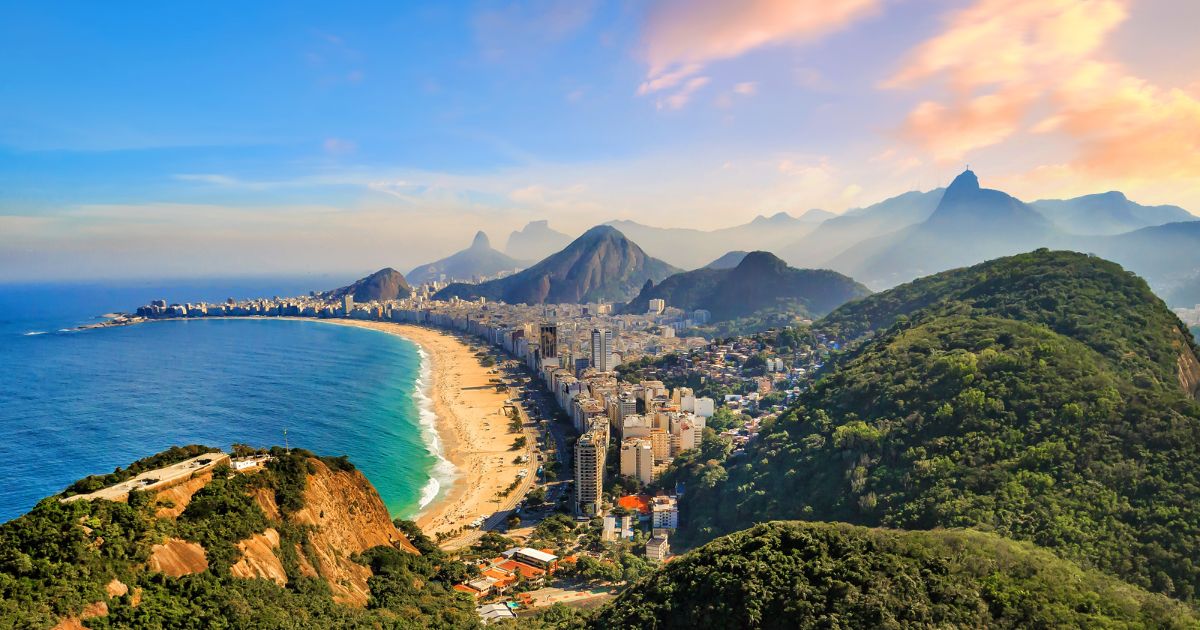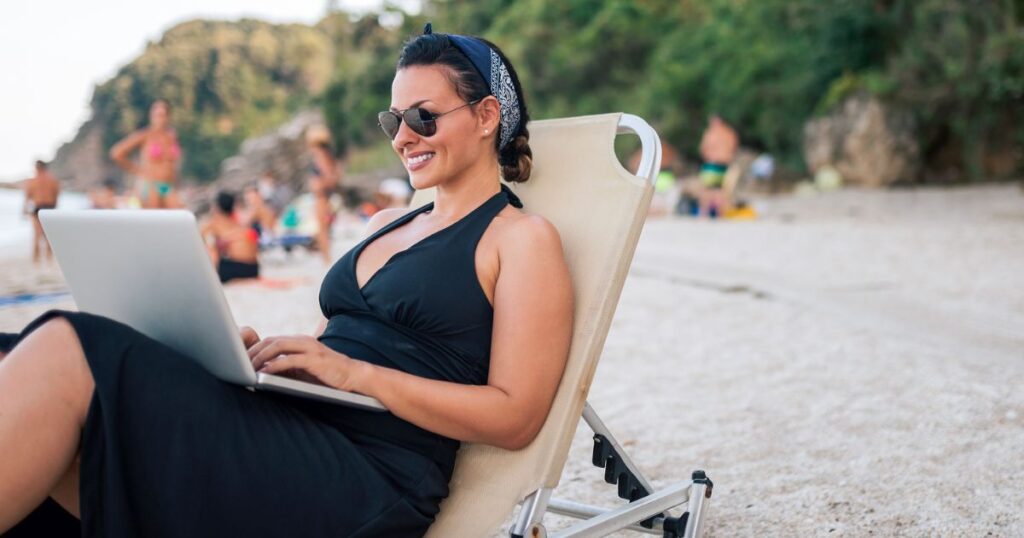From beaches to big cities, samba to surfing, and feijoada to caipirinhas, Brazil is a can’t-miss destination. And with the affordable cost of living, laid-back lifestyle, and diverse, open-minded culture, it makes sense that remote workers have been flocking to Brazil — especially since the launch of their digital nomad visa.
Tempted to move to Brazil yourself, or just want to learn more about the digital nomad visa in Brazil? Read on for our guide to learn everything from visa duration and requirements to where to live, what your tax obligations are, and more.
Snapshot of expat life in Brazil
- Population: 214.3 million
- Capital city: Brasília
- Currency: Brazilian real
- Official language(s): Portuguese
- School-year calendar: February to December
- Best time to move abroad: November to March
Work remotely while living as a digital nomad in Brazil

Tourism is a critical industry in Brazil’s economy, employing about 2.2 million people1 and making up 9.6% of the GDP. During the pandemic, though, tourism took a drastic downturn, with the number of international visitors dropping 66.2% from 2019 to 2020.2
As the worst of the pandemic subsided, however, restrictions around the world lifted and global tourism began to pick up. There was a particularly notable increase in travel among professionals who had, since the onset of the pandemic, been granted permission to work remotely.
To countries whose economies had been hit hard by a decline in tourism, the idea of hosting visitors for an extended period of time who would spend money without taking local jobs was particularly attractive. As a result, a number of countries began to consider creating dedicated visas for these digital nomads — including Brazil, whose digital nomad visa officially launched in January of 2022.
Brazil digital nomad visa requirements and duration
Application eligibility
In order to apply for the Brazil digital nomad visa, applicants must work for a company or client(s) located outside of Brazil. The minimum income requirements are $1,500 USD per month or $18,000 USD or more in savings.
Visa requirements & duration
When it comes time to apply for the digital nomad visa at a Brazilian embassy or consulate, bring the following required documents:
- Completed visa application form3
- A valid passport that will last for your entire stay in Brazil
- A passport-sized photo
- Clean criminal records
- Proof of financial means (e.g. bank statements, pay stubs) for the last three months
- Travel insurance that includes medical coverage for your entire stay
- Proof of being a digital nomad via a declaration letter
- An employment contract
- Proof that you’ve paid the application fee (typically $100 USD)
The processing time for the visa is about 14 to 30 days. Once granted, the visa lasts for one year, after which it can be renewed for another year.
Expats in Brazil – best places to live

Florianopolis
Florianopolis — or Floripa, as locals tend to call it — is a city in the south of Brazil that stretches across the mainland, Santa Catarina Island, and several smaller islands. This enchanting destination is known for its excellent surfing, modern city center, and great seafood (particularly oysters).
Living in Florianopolis – how much does it cost?
The average monthly expenses (excluding rent) for a single person in Florianopolis are about $577 USD, or $2,044 USD for a family of four.
Monthly rent in the city center, meanwhile, comes out to an average of:
- 1 BR: $409 USD
- 3 BR: $765 USD
Rio de Janeiro
The southern coastal city of Rio de Janeiro is the second most populous in Brazil, well-known for its beaches, awe-inspiring urban rainforest, samba music, and epic Carnival celebration.
Living in Rio de Janeiro – how much does it cost?
The average monthly expenses (excluding rent) for a single person in Rio de Janeiro are about $629 USD, or $2,217 USD for a family of four.
Monthly rent in the city center, meanwhile, comes out to an average of:
- 1 BR: $407 USD
- 3 BR: $850 USD
São Paulo
São Paulo, the largest city in Brazil, is located to the south, just slightly inland of the coast. This diverse, cosmopolitan city is a hotspot for delicious international cuisine, soccer (the city hosts three major clubs), and museums.4
Living in São Paulo – how much does it cost?
The average monthly expenses (excluding rent) for a single person in São Paulo are about $635 USD, or $2,291 USD for a family of four.
Monthly rent in the city center, meanwhile, comes out to an average of:
- 1 BR: $589 USD
- 3 BR: $1,093 USD
Pipa
Pipa, located along Brazil’s northern coast, is host to one of the best and most famous beaches in the country: Pipa Beach. What’s more, it’s officially been designated a digital nomad village.5 Pipa is known for its incredible surfing, nature sanctuary, and bohemian vibe.
Living in Pipa – how much does it cost?
The average monthly expenses (excluding rent) for a single person in Pipa are about $1,500 to $2,000 USD per month.
Monthly rent, meanwhile, comes out to an average of:
- 1 BR: $500-$700 USD
- 2 BR: $700-$900 USD6
Top 5 Best Things to Do in Brazil
While there’s a nearly endless list of exciting things to do in Brazil, the following five are absolute musts:
- Head to Rio de Janeiro in February to experience the largest Carnival celebration in the world
- Load up on delicious grilled meat skewers, pão de queijo, and farofa at an authentic churrascaria
- Hike up Corcovado Mountain to see the Christ the Redeemer statue, one of the new seven wonders of the world
- Explore the Amazon for an up-close look at the indigenous flora and fauna
- Visit Iguaçu Falls to marvel at 275 different waterfalls
Expats in Brazil – how to find your digital nomad community

It’s normal to feel unsure and even a little lonely when you move to a new country. Fortunately, Brazil is bursting with opportunities to get out and meet new people — you’ll be making new friends in no time. A few ideas to get you started:
- Move into a co-living space
- Work from a coworking space
- Stay in a social hostel
- Take classes (e.g. sailing, cooking, etc.)
- Attend events on Meetup & Couchsurfing
- Join local expat groups on Facebook
- Attend a language exchange or use a language exchange app
- Volunteer in your community
Moving to Brazil
Before making the leap to become a digital nomad in Brazil, make sure you cross the following off of your to-do list:
- Gather all of your important documents (passport, visa, etc.)
- Set up a doctor’s appointment to get any vaccines or medications you might need
- Buy tickets for your flights both into and out of the country
- Book accommodations for your arrival
- Research what to bring, create a list, and pack your bags
- Flag your travel plans to your bank so they don’t mark purchases abroad as suspicious
- Set up a forwarding address for your mail, if necessary
- Connect with other digital nomads in Brazil for advice on sites like Reddit or Facebook
Do digital nomads pay tax in Brazil?
The Brazilian government has not made very clear what the tax obligations associated with the digital nomad visa are — generally, though, it’s assumed that those who stay in the country for less than 183 days will not need to pay taxes.7 Those who stay beyond that will likely be taxed at the standard income tax rates of 7.5% to 25%.8
VAT in Brazil
The type of value-added tax that consumers in Brazil most often encounter is the Imposto Sobre Circulação de Mercadorias e Serviços (ICMS), which is placed on the circulation of goods as well as electricity and transportation/communication services. It ranges from 17% to 20%, depending on the state.9
Do American digital nomads in Brazil have to pay US taxes?
If you live and work in Brazil and meet the minimum income reporting threshold, you need to file a tax return. America’s tax system requires all citizens and permanent residents to file a federal tax return, regardless of where in the world they live. However, you will likely not owe US taxes if you are working as a digital nomad in Brazil.
Expat tax provisions for Americans filing US taxes in Brazil
Moving abroad may complicate your taxes and can feel overwhelming to navigate. Below are some of the additional reporting obligations and tax breaks expats should read up on.
Foreign Earned Income Exclusion (FEIE)
The FEIE allows you to exclude a certain amount of foreign-earned income from taxation ($112,000 for tax year 2022, $120,000 for tax year 2023). To be eligible, you need to pass either the Physical Presence Test or Bona Fide Residence Test. If you qualify, you’re also eligible for the Foreign Housing Exclusion/Deduction, which allows you to write off qualifying housing expenses like rent and utilities.
Foreign Tax Credit (FTC)
The Foreign Tax Credit allows you to essentially subtract what you pay in income taxes to a foreign government from what you owe the US government in income taxes. By claiming the FTC, most expats are able to cancel out their income tax liability entirely. To qualify, taxes must be based on income, made out in your name, legal, and paid.
Foreign Bank Account Report (FBAR)
If you have $10,000 or more in foreign bank accounts at any point in the year, you’ll need to report the contents of those accounts to the Financial Crimes Enforcement Network (FinCEN) via FinCEN Report 114.
Child Tax Credit (CTC)
If you have qualifying dependents living with you in Brazil, you can file the CTC just as you would in the US to get as much as $2,000 in partially-refundable credits.
Foreign Account Tax Compliance Act (FATCA)
If you have over $200,000 in foreign assets by the last day of the tax year, or over $300,000 in foreign assets at any point during the tax year, FATCA requires you to file Form 8938.
References
- Brazil OECD Travel Trends and Policies 2022
- Same as 1.
- Visa application form
- São Paulo Digital Nomad Visa Guide – Jack Roaming
- Official PR from Euronews announcing launch of Brazil digital nomad visa
- Cost of living in Pipa, Brazil
- Recent Brazilian government updates regarding digital nomad tax schema as covered by Globalnomad.guide
- Brazilian tax rates – PwC
- Corportate, other tax rates – PwC
Digital Nomad in Brazil - FAQ
-
Can I live in Brazil and work remotely for a US company?
Yes! In fact, with Brazil’s digital nomad visa, the company or client(s) that pay you must be located outside of Brazil, so a US-based employer is just fine.
-
If I speak Spanish can I understand Portuguese?
While the Spanish and Portuguese languages share a lot in common, there are still many differences in pronunciation and grammatical structure. If somebody speaks slowly and clearly, you might be able to get the basic gist of what they’re saying, but it will likely take some getting used to.

 Connect on LinkedIn
Connect on LinkedIn







